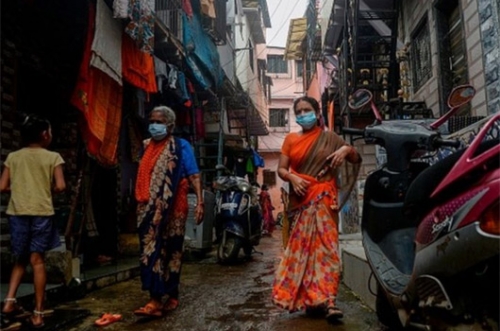Coronavirus: Are Indians more immune to Covid-19?
BBC | New Delhi
The Daily Tribune – www.newsofbahrain.com
Millions of Indians have limited access to clean water, consume unhygienic food, breathe foul air and live in densely packed surroundings.
Researchers have found this makes them susceptible to a host of non-communicable illnesses like heart and chronic respiratory diseases, cancer, and diabetes. These contribute significantly to the disease burden, according to a government report. Air pollution alone kills more than a million Indians every year.
The World Health Organisation says safe water, sanitation, and hygienic conditions are essential for protection of health against Covid-19. A joint study by the WHO and the United Nations' children's agency, Unicef, found that nearly three billion people - some 40 percent of the global population and living almost entirely in developing nations - lack "basic hand washing facilities". This was enough to spark concerns that the coronavirus would tear through their populations, and lead to millions of deaths in countries such as India.
"Typically access to healthcare facilities, hygiene and sanitation is poorer in these countries and is often believed to be the contributing factor of higher incidence of communicable diseases there. It was not unexpected that Covid-19 would have catastrophic consequences in the low and low-middle income countries," says Dr Shekhar Mande, director general of the Council of Scientific and Industrial Research (CSIR).
India has a sixth of the world's population and a sixth of the reported cases. However, it accounts for only 10% of the world's deaths from the virus, and its case fatality rate or CFR, which measures deaths among Covid-19 patients, is less than 2%, which is among the lowest in the world.
Now, new research by Indian scientists suggests that low hygiene, lack of clean drinking water, and unsanitary conditions may have actually saved many lives from severe Covid-19.
In other words, they propose that people living in low and low-middle-income countries may have been able to stave off severe forms of the infection because of exposure to various pathogens from childhood, which gives them sturdier immunity to Covid-19. Both papers, yet to be peer-reviewed, looked at deaths per million of the population to compare fatality rates.
Related Posts

